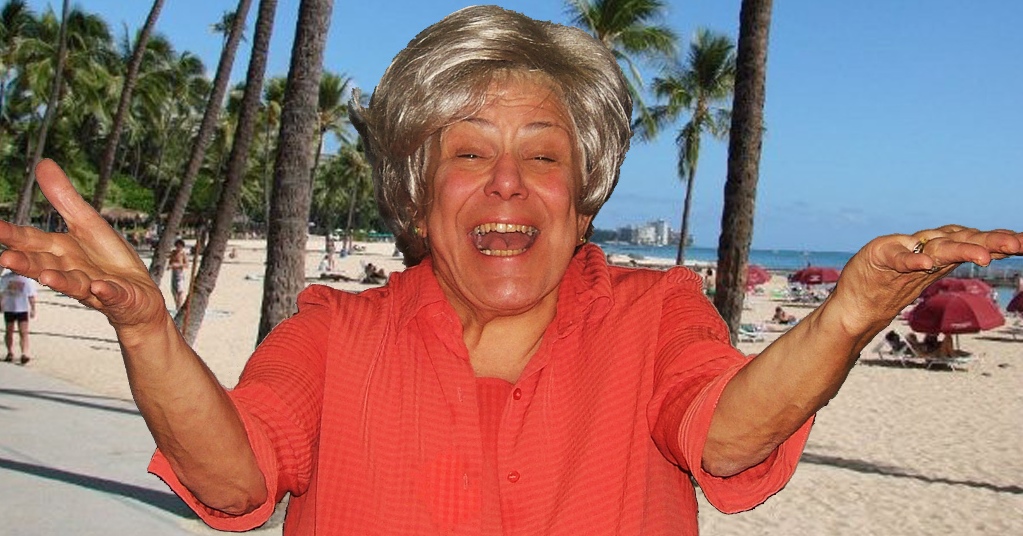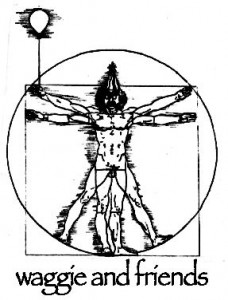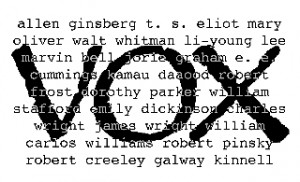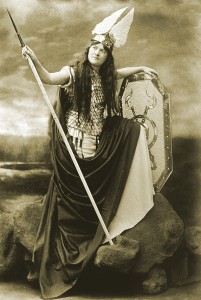
Blink, and it’s 1984 all over again.
Over here: Waggie and Friends, skipping sweetly through the landmines of improv comedy, quick wits and crack timing in tow.
Over there: Brassy Wendy Westerwelle, going for the gold in a one-woman show.
Turn off the radio, will you, please? Sounds like they’re playing Karma Chameleon again.
No, this is not an April Fools joke. Through some sort of cosmic coincidence, the ghosts of Portland past are flitting across the city’s stages starting tonight. The sweetly funny Waggie, pioneers of comedy improv in Stumptown (they were the first group to bring TheatreSports to town) are taking over the Brody Theater stage for a two-nights-only reunion Thursday and Friday.
 And Westerwelle, the irrepressible onetime Storefront stalwart who scored a big hit with her Sophie Tucker show Soph: A Visit With the Last of the Red Hot Mamas, takes on a very different personality in the Northwest premiere of Martin Sherman‘s play Rose, opening Friday at CoHo Theater.
And Westerwelle, the irrepressible onetime Storefront stalwart who scored a big hit with her Sophie Tucker show Soph: A Visit With the Last of the Red Hot Mamas, takes on a very different personality in the Northwest premiere of Martin Sherman‘s play Rose, opening Friday at CoHo Theater.
*
Waggie’s reunion gig at the Brody is a smash before it opens: both nights are sold out, and, as producer Domeka Parker says, she has “a waiting list for the waiting list.” The good news: there’s already talk about scheduling more dates, although nothing’s settled yet.
Waggie was so good and so influential in Portland not just because it was early to the improv game but also because its performers were seasoned veterans of the legit stage; actors who had both dramatic and comic chops. Domeka Parker’s parents, Scott Parker and Victoria Parker-Pohl, were core members, and they’ll be joined onstage by fellow alums David Fuks, Eric Hull, Cindy Tennant and Bob Zavada. Original funnyman Gary Basey couldn’t make the trip from his California home. His spot is being taken for these shows by a shirttail Wagger, Domeka Parker’s cousin Ian Karmel, who is a Groundlings alumnus and a member of her improv group, the Gallimaufry. (The younger Parker may not have been born in a suitcase, but she was “raised in the throes of improv,” and she’s become an improv performer and teacher herself: “I cannot escape it, and I promise you … I have tried.”)
Waggie, which stayed together until the mid-1990s, worked up a fine sweat on the TheatreSports circuit, playing tournaments in San Francisco, Los Angeles, Seattle, Edmonton and Calgary. It opened shows for the likes of gonzo journalist Hunter S. Thompson, Monty Python’s Graham Chapman, and cartoonist Lynda Barry. And it performed plenty of shows for the home crowd, including some memorable New Year’s Eve gigs.
Obviously people remember, and they’re eager to turn back the clock. Let’s just leave Kenny Loggins and Duran Duran out of it, though, shall we?
*
In England, Martin Sherman’s Rose was nominated for the Laurence Olivier Award as best new play in 2000. It hasn’t enjoyed such a welcoming reception in the United States.
“No one in this country has done it, except Olympia Dukakis,” Westerwelle said a couple of weeks ago over coffee and tea at Costello’s Travel Caffe. “And I talked with her on the phone yesterday, for 20 minutes. I don’t know how I got hold of her. I just called everyone I know across the country, I said, ‘How do I get hold of Olympia Dukakis?’ And I did.”
Continue reading Wendy & Waggie: play it one more time →
 Today we offer a quick link to Mr. Scatter’s review for The Oregonian, under his non de plume Bob Hicks, of Achilles’ Alibi, the latest evening of choral poetry from Eric Hull and his company Vox.
Today we offer a quick link to Mr. Scatter’s review for The Oregonian, under his non de plume Bob Hicks, of Achilles’ Alibi, the latest evening of choral poetry from Eric Hull and his company Vox. It’s the latest in Eric Hull‘s
It’s the latest in Eric Hull‘s  Waterbrook is basically a room with an entrance area and a door leading to what serves as a green room for the performers. Somewhere around the corner, down a broad-plank floor, is a restroom. On Saturday the performance space had a few rows of folding chairs for the spectators, a lineup of music stands up front for the six performers, and three chairs to the side for the performers who occasionally sat a poem out. In other words: all the tools you really need to create some first-rate performing art.
Waterbrook is basically a room with an entrance area and a door leading to what serves as a green room for the performers. Somewhere around the corner, down a broad-plank floor, is a restroom. On Saturday the performance space had a few rows of folding chairs for the spectators, a lineup of music stands up front for the six performers, and three chairs to the side for the performers who occasionally sat a poem out. In other words: all the tools you really need to create some first-rate performing art.
 And Westerwelle, the irrepressible onetime Storefront stalwart who scored a big hit with her Sophie Tucker show Soph: A Visit With the Last of the Red Hot Mamas, takes on a very different personality in the Northwest premiere of
And Westerwelle, the irrepressible onetime Storefront stalwart who scored a big hit with her Sophie Tucker show Soph: A Visit With the Last of the Red Hot Mamas, takes on a very different personality in the Northwest premiere of